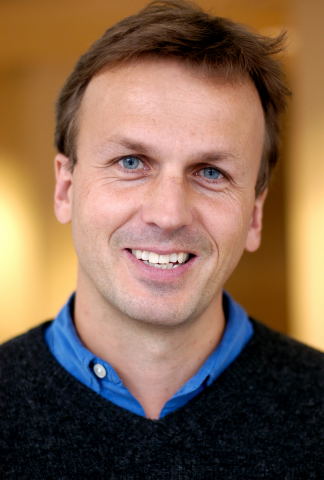On Monday, the Ugandan parliamentary committee on legal affairs began the public hearings on the Constitution (Amendment) Bill 2005. – We are disappointed that only a small, select group seems to have been invited to comment on the Bill, says Niels Jacob Harbitz (picture) from the Human Rights House Foundation. (24-FEB-05)
The core information of this article has been extracted from Hamis Kaheru´s 22 February piece in the Ugandan newspaper New Vision. Prior to republication here, the material has been edited, added to and modified by HRH.
– We shall meet the Foundation for Human Rights Initiative and other organisations and individuals up to the end of next week, committee chairman Jacob Oulanyah said yesterday. Oulanyah said other groups expected to appear before the committee included the Uganda Human Rights Commission, the Inspectorate of Government, the Uganda Law Reform Commission, the Electoral Commission and the Law Development Centre.
-This is not democracy. In effect, civil society is silenced
-While this is all very well, comments Harbitz, HRH´s Project Manager for East Africa, -we are deeply disappointed that the Ugandan government once again seems to neglect the views and opinions of a much wider segment of civil society.
From sources in Uganda who wish to remain unidentified, HRH has learnt that a broad coalition of human rights, women´s and anti-corruption initiatives and organisations who have put themseves forward have yet to receive any kind of response to their offer. Tomorrow, this coalition will present to the Ugandan government a list of people, representative not only of the close to one hundred different organisations they represent, but also of all different regions, parts and districts of Uganda, as civil society?s true consultative body.
-I will listen, but only to my good, old friends
-The selection of organisations and institutions invited to comment on the Bill, continues Harbitz, -looks suspiciously like yet another attempt by President Yoweri Museveni to silence the growing doubt throughout the international community about his democratic credentials. Anyone who knows the situation just that little bit better can see, though, that the organisations and institutions listed count among the raditionally least troublesome for the government. The coalition of human rights, women´s and anti-corruption networks and organisations now consolidating itself, on the other hand, include those known to be the most critical.
-We expect the international community to react
-HRH takes for granted that the international community, through its diplomatic presence, will express the same kind of concern that we express here; namely that in the handling of proposed amendments to the Constitution that have immediate and radical consequences for Ugandan democracy, it is of particular importance to make sure the handling procedures are 100 percent fair, open and democratic, states Harbitz. -Given the fact that a broader segment of civil society organisations has yet to be invited to air its views and opinions, HRH fears, though, that this will not be the case. Instead, with the support of his government and parliament, President Museveni?s attempts to undermine some of the most fundamental and constitutionally laid down principles of Ugandan democracy are gaining momentum.
-Tragic for Uganda, deeply embarrassing for the rest of us
-Unless some unexpected turn of events occur, there is reason to believe, by now, that the 2006 elections have a foregone conclusion, with Museveni becoming President for life. In effect, that will mark the end of Ugandan democracy, predicts Harbitz. -This will not only be a tragic moment for Uganda, but also a very embarrassing one for all those around the world, individuals and whole nations alike, who have continued to hold President Museveni in such high esteem, not the least because of his alleged commitment to democracy.
-The districts must be loyal. So says the Constitution
Chairman Oulanyah said MPs who are not members of the committee would present their views and proposed amendments to the committee for scrutiny before the plenary starts debating the Bill. At Monday?s hearing, Tom Kayongo (Lubaga North) supported dual citizenship for Ugandans in the diaspora. On regional governments, Moses Kizige (Bugabula North) wants the constitution to say that the districts of Busoga shall be deemed to have agreed to co-operate as is the case with Buganda. -On face value, this also sounds odd to us, concludes Harbitz. -While democracy is being undermined in the process of amending the Constitution, -the districts? loyalty must at least be allowed to remain open and for the districts themselves to decide from case to case, without having to fear the consequences of acting anti-constitutionally.





